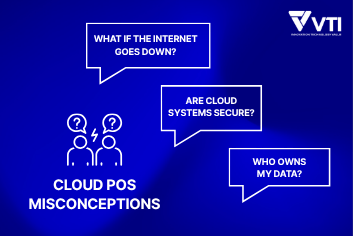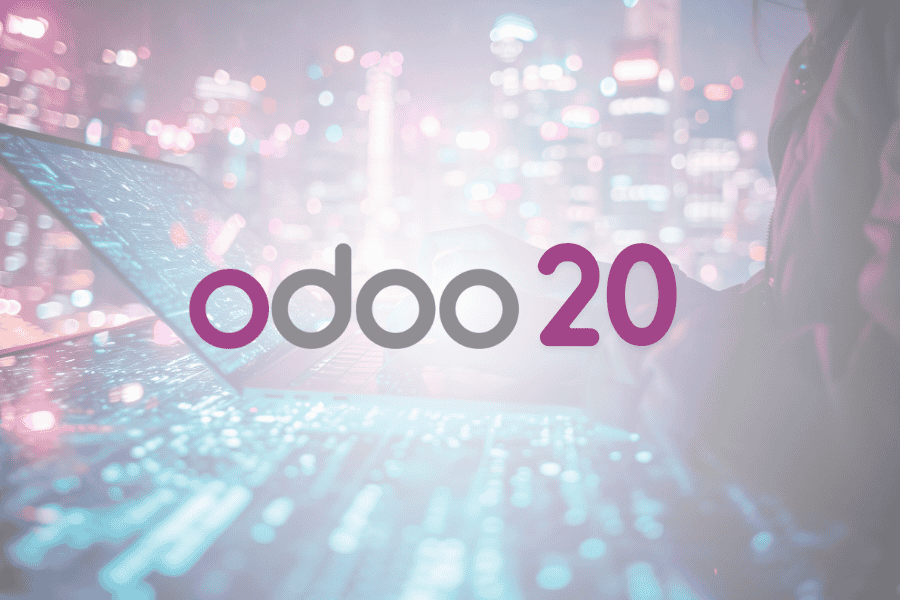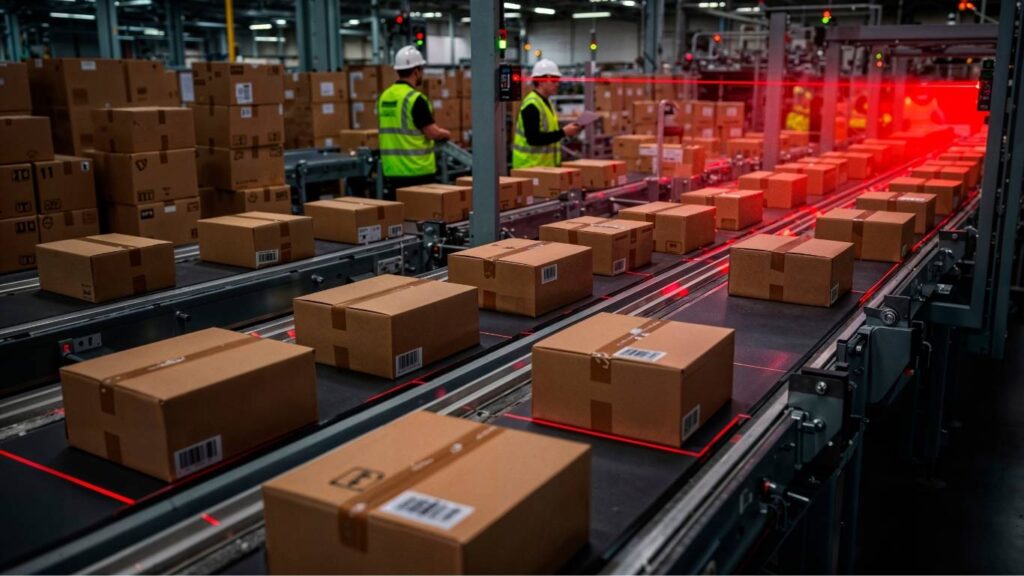The business world is rapidly evolving, with technology adoption streamlining operations across industries. A significant trend, especially in the Asia-Pacific region, is the widespread integration of Cloud Point of Sale (POS) systems. This isn’t just a niche technology; it’s becoming the standard. The global cloud POS market, valued at USD 2.6 billion in 2023, is projected to reach USD 8.5 billion by 2033, with a robust CAGR of 12.5% from 2025 to 2033 (DHR). This shift is driven by the undeniable advantages cloud POS offers, with over 60% of retailers having adopted cloud-based POS systems in 2024, and 78% of small-to-medium retailers preferring them for their lower upfront costs and enhanced functionality.
Suppose you’re a business owner, retail manager, or decision-maker researching POS systems for the first time. In that case, this guide will walk you through everything you need to know about cloud POS in simple terms that anyone can understand.
Understanding Cloud POS System
What Exactly is a Cloud POS System?
A Cloud POS (Cloud based Point of Sale) system is a payment and sales management solution where all your business data lives on remote servers (the “cloud”) instead of being stuck on one computer in your store. This means your sales records, customer information, and inventory details are stored online and accessible through tablets, smartphones, or computers.
Think of a cloud POS system like your email. Just as you can access your Gmail from any device anywhere in the world, a cloud based POS lets you access your business data from anywhere with an internet connection.
Here’s what makes up a modern cloud point of sale:
Hardware Components:
- Tablets or mobile devices (often iPads or Android tablets)
- Receipt printers that connect wirelessly
- Barcode scanners for quick product lookup
- Card readers for contactless payments
Software Elements:
- Cloud-based applications you access through web browsers
- Real-time data syncing across all devices
- Automatic updates without manual installation
Example: A popular ramen chain in Osaka uses tablets as their POS terminals. When a customer orders, the data instantly appears in the kitchen, updates inventory levels, and syncs with their accounting software – all without any local servers.
The Big Difference: Cloud vs. Traditional POS

Let me paint a clear picture with a simple comparison:
Traditional POS Systems:
- Like having a filing cabinet in your office – you need to be physically there to access your files
- All data stored on one computer in your store
- If that computer breaks, you lose access to everything
- Expensive upfront costs (often $3,000-$15,000 per terminal)
- Manual updates and maintenance
Cloud POS Systems:
- Like having Google Drive – access your files from anywhere
- Data stored safely in the cloud
- If one device breaks, your data is still safe and accessible
- Lower upfront costs (often $50-$200 per month)
- Automatic updates and maintenance
Why is Cloud POS Important to Businesses?
In today’s digital economy, businesses need systems that adapt quickly to changing customer expectations. A cloud based point of sale system isn’t just a trend – it’s becoming essential for staying competitive. Whether you manage a single boutique in Seoul or a chain of cafes across Bangkok, cloud technology transforms how you handle sales, inventory, and customer relationships.
The digital transformation isn’t just a buzzword – it’s happening right now in retail and hospitality across Asia. Here’s why:
Real-Time Everything: Sarah Kim, who manages a chain of beauty stores in Seoul, explains: “When a customer asks if we have a specific lipstick shade in our Gangnam location, I can check our inventory instantly from our Hongdae store. No phone calls, no waiting.”
Cost Efficiency: Many businesses are discovering that cloud POS systems can reduce their total technology costs by 30-50% compared to traditional systems.
Mobility and Flexibility: Perfect for the Asian market where mobile-first business approaches are becoming standard.
Who Should Consider Cloud POS?
- Medium to large business owners looking to streamline operations across multiple locations
- Retail managers wanting real-time inventory insights
- Hospitality managers needing flexible payment options
- Decision-makers researching modern POS solutions for the first time
How Cloud POS Systems Actually Work
Cloud Computing Made Simple
Don’t worry – you don’t need a computer science degree to understand this.
Imagine your POS system as a restaurant. In a traditional setup, you’d have your own kitchen (local server) where all food preparation happens. If your kitchen has problems, your restaurant stops working.
With cloud POS, it’s like having access to a massive, professional kitchen facility (data center) that serves hundreds of restaurants. This kitchen never stops working, has backup equipment, and professional chefs (IT experts) maintaining everything 24/7.
Here’s the simple process:
- Customer makes a purchase → Your tablet or device captures the sale
- Data travels to the cloud → Information goes to secure remote servers
- System processes everything → Inventory updates, receipts generate, reports compile
- Information syncs everywhere → All locations see the same real-time data
The Technical Magic Behind the Scenes
Secure Data Centers: Your business data is stored in fortress-like facilities with multiple layers of security, backup power, and redundant systems.
APIs – The Universal Translators: These allow your POS system to “talk” to other software like your accounting system, e-commerce platform, or inventory management tools.
Mobile Synchronization: Every time you process a sale on your tablet, that information instantly updates across all your devices and locations.
Modern cloud POS systems don’t work in isolation. They integrate with:
- ERP Systems: For comprehensive business management
- CRM Tools: To track customer preferences and buying patterns
- Inventory Management: Real-time stock updates
- IoT Devices: Smart scales, temperature monitors, and automated reordering systems
For example, VTI POS Solution has been customizing integrated systems for several major retail chains, incorporating AI technology to predict customer behavior and optimize inventory management.
Common Misconceptions About Cloud POS Systems

Are Cloud systems secure?
Major cloud providers invest millions in security – often more than small businesses could afford for local systems. Good cloud POS employ dedicated security teams and follow strict compliance standards.
They use something called encryption – which is like turning your data into a secret code while it travels over the internet and when it’s stored. This protects your sensitive customer and payment information from naughty cyber-snoopers.
What if the internet goes down?
Modern cloud based pos systems include offline modes. This means if your internet connection in, say, a bustling Bangkok market temporarily drops, you can still make sales, and the data will sync up to the cloud once you’re back online.
Another favorable thing about the cloud is automatic backups. If your tablet breaks or there’s a power cut, your data isn’t lost. It’s safe in the cloud, ready for when you’re back online.
I don’t own my data?
You maintain complete ownership of your business data. Cloud providers are simply secure storage custodians, like banks holding your money.
However, no system is 100% bulletproof. Risks can include cyberattacks or internet outages. Although Cloud POS providers use many layers of security like firewalls and intrusion detection, there are things you can do to better ensure the security:
- Use strong, unique passwords.
- Keep your software (and your team’s knowledge) updated.
- Train employees on safe practices.
Benefits of Cloud POS Systems
Cost Efficiency and Scalability
Remember when opening a new store location meant buying expensive servers and hiring IT staff? Those days are gone. Cloud based POS with its innovative technology has optimized labor cost to the fullest. Take a look at the practical numbers:
Traditional POS Setup:
- Server: $3,000-$10,000
- Software licenses: $2,000-$5,000 per location
- IT maintenance: $500-$1,000 monthly
Cloud POS Setup:
- Monthly subscription: $50-$200 per location
- Minimal hardware costs (tablets and printers)
- No IT maintenance fees
Real Example: A fashion retailer in Vietnam expanded from 1 to 5 stores in six months using cloud based point of sale. Total setup cost? Less than what one traditional system would have cost.
Accessibility and Remote Management
Picture running your business from anywhere in the world. A restaurant owner in Thailand recently monitored his three locations while vacationing in Japan – checking sales, inventory levels, and staff performance from his phone.
What you can do remotely:
- View real-time sales reports
- Adjust menu prices or inventory
- Monitor employee performance
- Generate financial reports
- Update promotions across all locations
Enhanced Customer Experience
Today’s customers expect fast, convenient service. Cloud point of sale systems deliver exactly that.
Before Cloud POS: Customer waits in line → Cashier manually enters items → Struggles with outdated system → Slow payment processing → Long receipt printing
With Cloud POS: Customer approaches → Quick barcode scan → Multiple payment options (cards, mobile wallets, QR codes) → Instant digital receipt → Loyalty points automatically added
Success Story: An electronics store in Singapore reduced average checkout time from 5 minutes to 90 seconds using cloud POS with integrated mobile payments.
Integrations and Automation
Modern cloud pos systems connect with other business tools like puzzle pieces fitting together perfectly.
Popular Integrations:
- Accounting Software: Automatic financial record updates
- E-commerce Platforms: Sync online and offline inventory
- Marketing Tools: Customer data for targeted campaigns
- Supply Chain Systems: Automated reordering when stock runs low
Example: A bookstore chain in Malaysia integrated their cloud POS with their website. When someone buys a book online, inventory automatically updates across all physical stores, preventing overselling.
Key Guides to choose the Right Cloud POS Provider
Comparing Top Platforms
Comparing Top Platforms
| Feature | Square | Lightspeed | Shopify POS | Toast | Vend | VTI Solution |
| Ease of Use | ⭐⭐⭐⭐⭐ | ⭐⭐⭐⭐☆ | ⭐⭐⭐⭐☆ | ⭐⭐⭐⭐☆ | ⭐⭐⭐⭐☆ | ⭐⭐⭐⭐⭐ |
| Best For | Small businesses | Retail chains | E-commerce + retail | Restaurants | Retail focus | Customized systems for mid-to-large enterprises |
| Integrations | Extensive | Extensive | Extensive | Hospitality-focused | Retail-focused | Extensive |
| Security | PCI DSS | PCI DSS | PCI DSS | PCI DSS | PCI DSS | PCI DSS |
| Pricing | Free tier + fees | Subscription | Subscription | Subscription + fees | Subscription | Subscription + fees |
For Retail Businesses:
- Square: Great for small to medium retailers, transparent pricing
- Lightspeed: Excellent inventory management, popular in fashion retail
- Clover: Versatile with many third-party integrations
For Restaurants:
- Toast: Industry leader with comprehensive restaurant features
- Resy: Excellent for reservation management integration
For Custom Solutions:
- VTI’s POS Solution: Specializes in customized systems for mid-to-large enterprises with AI integration capabilities
Find more informative details about POS terminals here!
Features to Consider
Choosing the right cloud based point of sale system is like selecting the perfect car – it depends on your specific needs and journey ahead. Before making a decision, ask these questions:
- Assess your current needs – What problems do you want to solve?
- Plan for growth – Will the system scale with your business?
- Test before committing – Most providers offer free trials
- Consider total costs – Include hardware, training, and ongoing support
- Check local support – Ensure customer service in your timezone and language
Future Trends and Innovations in Cloud POS Systems
The future of cloud point of sale systems is exciting, with innovations that seemed like science fiction just years ago:
AI-Powered Analytics: Systems that predict which products will sell best next week based on weather, local events, and buying patterns.
Blockchain Integration: Enhanced transaction security and transparent supply chain tracking – particularly valuable for luxury goods and food safety in Asian markets.
Augmented Reality Features: Customers can visualize products before purchase, integrated directly with your POS system.
Voice-Activated Controls: Staff can process returns or look up inventory using voice commands while helping customers.
Frequently Asked Questions
Q: Can cloud POS systems work without the internet? A: Most modern systems offer offline modes for basic functions like processing sales. However, you’ll need internet connection for real-time reporting and multi-location synchronization.
Q: How secure is my data in the cloud? A: Reputable cloud POS providers use bank-level encryption and comply with PCI DSS standards. Your data is often more secure in the cloud than on local servers.
Q: What hardware do I need? A: Basic setup includes tablets or computers, receipt printers, and cash drawers. Specific needs depend on your business type and size.
Q: How long does implementation typically take? A: For most small to medium businesses, implementation takes 1-4 weeks, including staff training and data migration.
Q: Can I customize the system for my specific business needs? A: Many providers offer customization options. Companies like VTI POS Solution specialize in creating tailored solutions for large enterprises with specific requirements.
Conclusion: Your Next Steps
The shift to cloud POS systems isn’t just a trend – it’s the new standard for businesses that want to stay competitive in today’s digital economy. Whether you’re managing a single store in Singapore or a restaurant chain across Thailand, cloud POS systems offer the flexibility, security, and scalability your business needs to thrive.
Remember, the best POS system is the one that fits your specific business needs and budget. Take time to evaluate your requirements, test different platforms, and choose a solution that can grow with your business.
The future of business is in the cloud. The question isn’t whether to make the switch, but when and with which provider.
Ready to explore cloud POS solutions especially for your business? Consider reaching out to VTI, we can offer customized solutions tailored to your specific needs.
![[FREE EBOOK] Strategic Vietnam IT Outsourcing: Optimizing Cost and Workforce Efficiency](https://vti.com.vn/wp-content/uploads/2023/08/cover-mockup_ebook-it-outsourcing-20230331111004-ynxdn-1.png)





